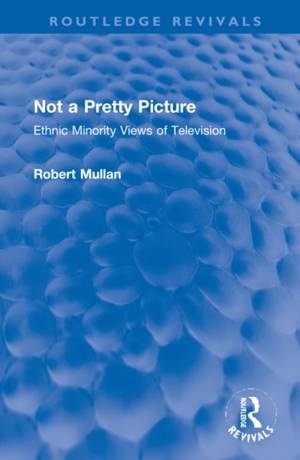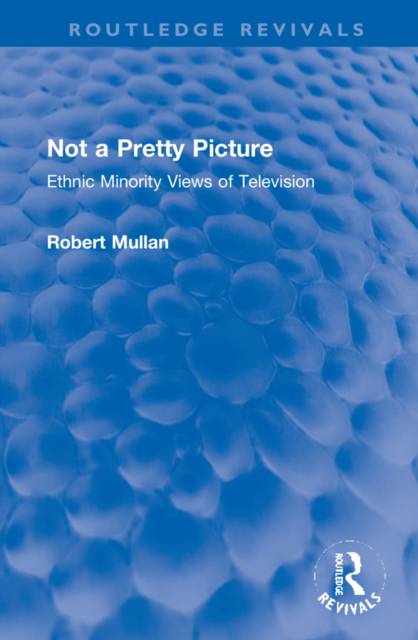
- Retrait gratuit dans votre magasin Club
- 7.000.000 titres dans notre catalogue
- Payer en toute sécurité
- Toujours un magasin près de chez vous
- Retrait gratuit dans votre magasin Club
- 7.000.0000 titres dans notre catalogue
- Payer en toute sécurité
- Toujours un magasin près de chez vous
Description
Originally published in 1996, ethnic minorities in the UK made up over 5% of the population yet were hardly represented in the hundreds of hours of terrestrial broadcast television each week. The blatant racism of The Black and White Minstrel Show was over, but more subtle forms of racism were piped into our living rooms in an endless stream of white-dominated programming. 'Comedies' and soaps presented non-whites as a sort of joke humanity - stereotypical, simple and amusingly childish. Serious programmes swelled on the negative aspects of ethnicity: race as a problem, cultural clashes and language barriers. Above all - not white equals not normal.
For many years critics of popular television argued that such imbalance was harmful. The lack of positive non-white TV role models for children to identify with was leading to growing alienation and disaffection. Ethnic minorities increasingly defined themselves in opposition to white institutions. They were turning towards separate channels - narrow-casting - provided to meet their own TV needs.
Based on both extensive survey research and interviews with actual viewers, Not a Pretty Picture investigates the whole issue of TV and ethnic minority viewers at the time: their viewing choices, their criticisms, their feeling about the way they are portrayed. The conclusions are damning: for most of Britain's ethnic minority communities TV was a white medium, predominantly controlled by whites, portraying white culture and denying non-whites a voice. Not a Pretty Picture, however, provides a voice for these views and a valuable insight into the way ethnic minorities see TV. Today it can be read in its historical context, to see how far we have come, as well as what still needs to be done.
Spécifications
Parties prenantes
- Auteur(s) :
- Editeur:
Contenu
- Nombre de pages :
- 120
- Langue:
- Anglais
- Collection :
Caractéristiques
- EAN:
- 9781032234519
- Date de parution :
- 24-02-22
- Format:
- Livre relié
- Format numérique:
- Genaaid
- Dimensions :
- 156 mm x 233 mm
- Poids :
- 311 g

Les avis
Nous publions uniquement les avis qui respectent les conditions requises. Consultez nos conditions pour les avis.






